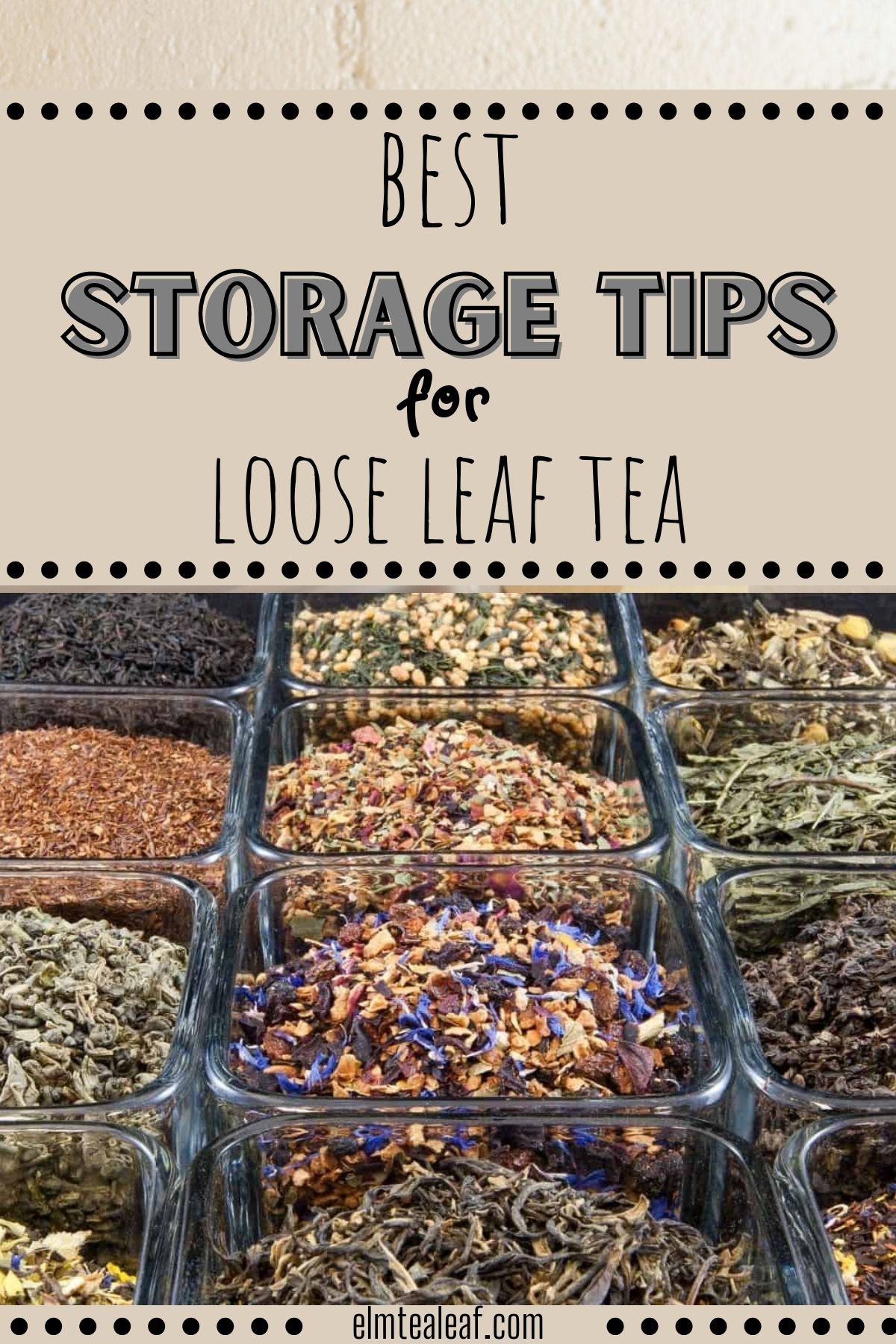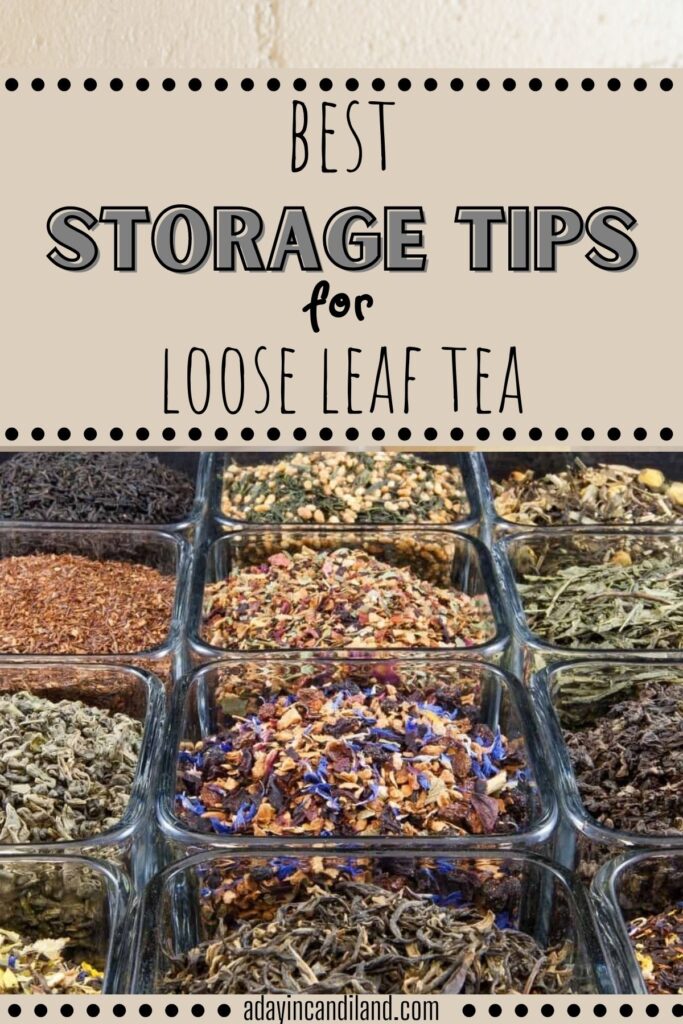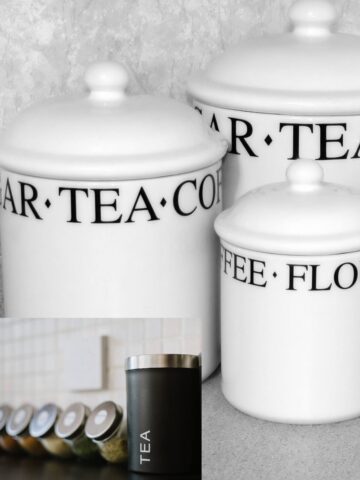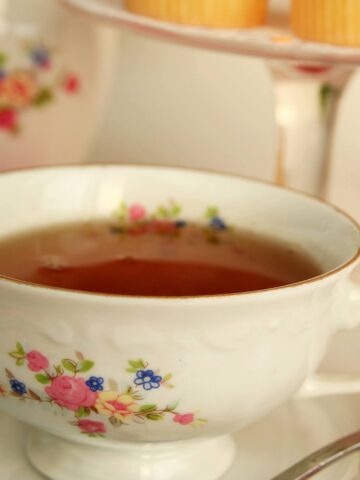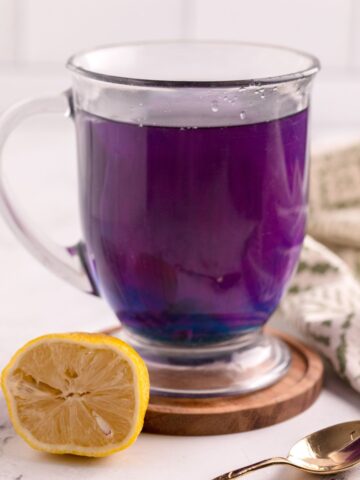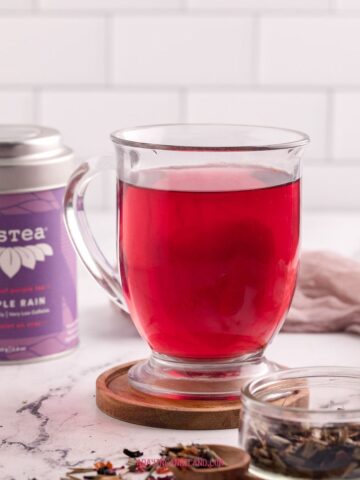Learn about the best solutions on How to store your loose-leaf tea to extend its freshness, and keep it tasty.
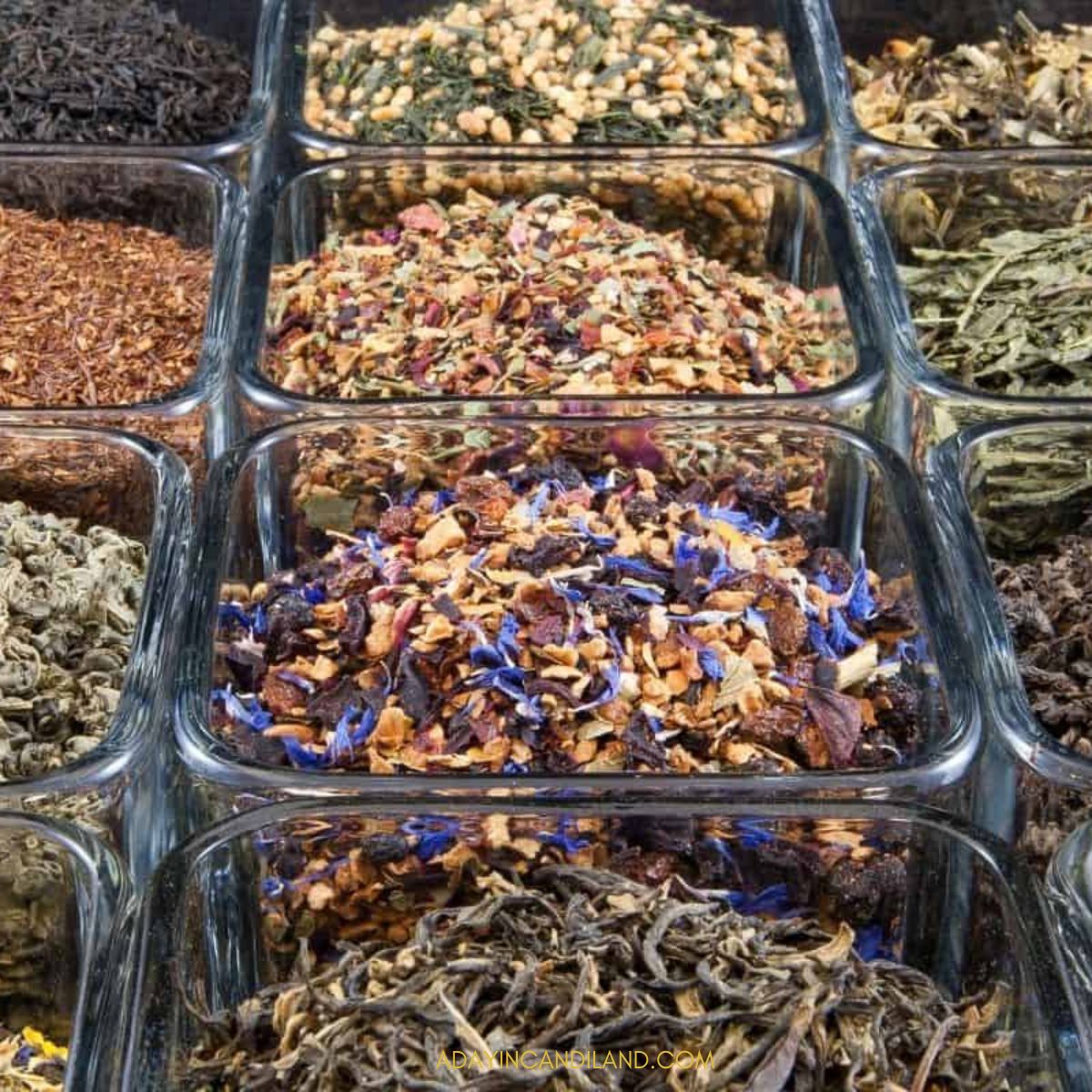
Best Loose Leaf Tea Storage Tips
Loose-leaf tea has become very popular over the last decade or so.
Many people enjoy drinking tea at home, especially during the cooler months.
While loose-leaf tea is eco-friendly and tasty, it does require some special care.
If you want to store loose-leaf tea properly, follow this simple guide to keep your tea fresh and incredibly delicious.
Tea leaves are dried from the plant Camellia sinensis.
The leaves can then be dried (becoming loose-leaf tea), put into small bags (becoming teabags), or even rolled into small balls (becoming tea flowers).
After being dried out, the tea can be stored to be drunk at a later date. If stored correctly, tea can last for ages.
Rules Of Thumb For Tea Storage
Here are a few of our most important rules when it comes to tea storage.
– To prevent oxidation, store tea in an airtight glass jar.
– Store your tea in a dark, cool, and dry place.
– Don’t store your tea near other foods.
– Keep your tea away from strong smells.
So long as you follow these rules, you should be able to consume the tea before any major degradation of taste occurs.
Tea degradation occurs through a process of oxidization.
Oxidizing tea is when you expose tea leaves to oxygen.
This changes the taste but is generally a slow process that occurs over quite a long period.
There are a few kinds of teas that are prized because they haven’t oxidized, and their delicate vitality of flavor.
This is the case with teas such as green tea, yellow tea, and white tea – all of which have a light, refreshing taste.
Be careful when you are storing these teas, as you will be able to taste them when they become oxidized, and they will be more bitter and acrid.
When tea goes through the process of oxidation, it turns brown and has a stronger taste.
Black tea is an example of an oxidized tea. Wulong is another type of tea that is often oxidized.
Oxidation happens when tea leaves are exposed to air.
Tea that has been oxidized tastes more bitter than unoxidized tea, so it is more common to drink black tea with milk and sugar than a less oxidized tea.
You are less likely to notice if a tea such as black tea has become further oxidized, though we still recommend that you follow our tea storage guidelines.
How To Store Tea You Are Aging
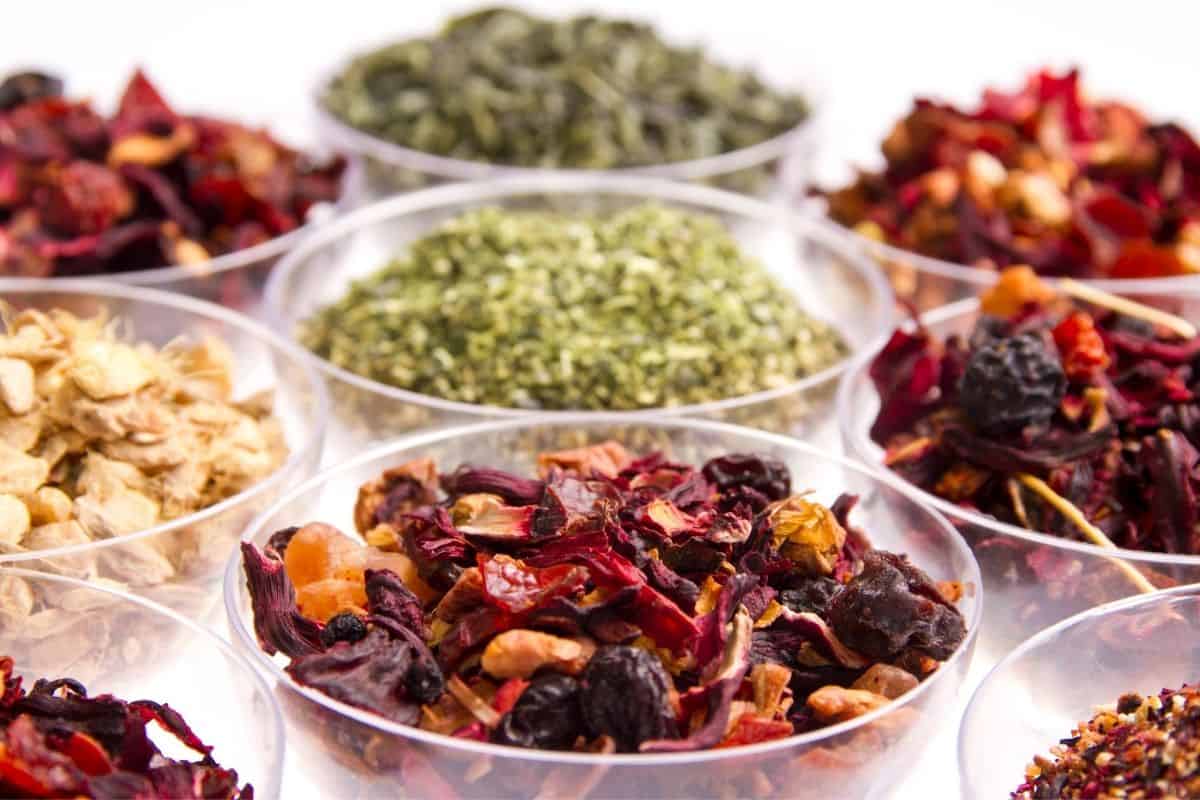
Aging teas is a process that allows the tea to change over the years, becoming more palatable and tasty.
Teas are stored in different ways depending on how we want to age them.
Aged tea is synonymous with storing the tea – read on for our favorite methods to store tea for aging.
Hermetic Seal Storage
Wulong teas are normally kept in sealed containers.
They are frequently left to mature for several years, slowly oxidizing due to the ambient oxygen trapped inside the container.
This procedure can take a long time.
Non-Hermetic Seal Aging
Because puer is created from fermented tea leaves, it isn’t usually protected from moisture and humidity in the air.
The fermentation process is aided by a controlled amount of moisture, which results in a more acidic tea.
As a result, fermentation increases the acidity of the tea, while oxidation causes the tea to turn brown.
Puer acquires a robust flavor over time. Puer is made from raw Puer leaves that have been preserved for a long time before being brewed.
How To Store Teas You Are Not Aging
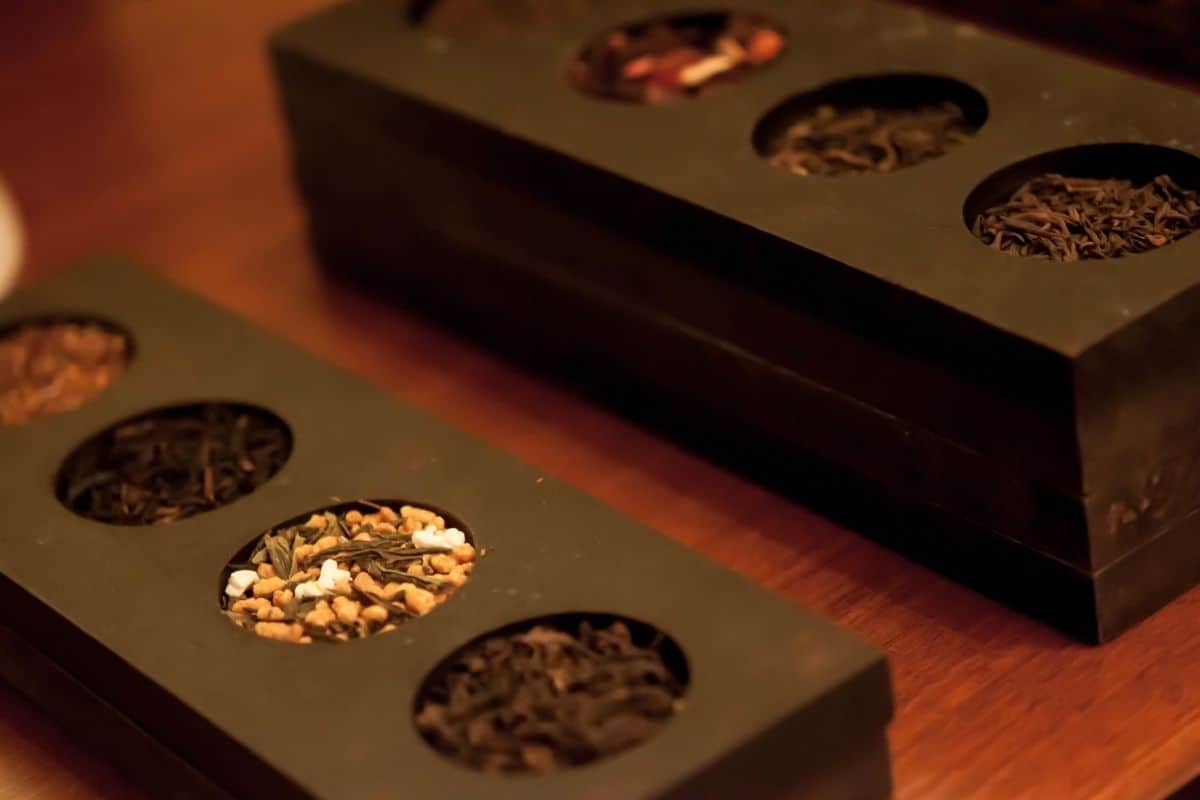
Here’s our guide to preventing tea from oxidizing and fermenting.
Keep Tea Free From Oxygen
Teas should be stored in an airtight container. To ensure the safety of the tea leaves, they must be sealed in a vacuum bag.
Vacuum sealing is ideal because it preserves the integrity of the tea leaves and reduces oxidation.
However, it is important to note that vacuum sealing is not recommended for delicate leaves such as ball-style wulong, as it could crush the tea leaves.
For these delicate teas, you should flush them with nitrogen before sealing them, as the nitrogen keeps the leaves fresh.
Iron salt packets are also great for keeping your tea fresh, though they should be used only in long-term tea storage situations.
Additional Tea Articles
Keep Teas Free From Heat
Teas should be kept cool, as low-level heat can speed up the oxidation process.
Some teas, such as delicate white and green teas, should be stored in the fridge or freezer.
When you take them out of the fridge or freezer, make sure there is no moisture left inside the packet.
Don’t open the package until it reaches room temperature. Store the tea in an airtight container.
That being said, most standard teas can just be stored in a cool cupboard, away from radiators, ovens, or other heat sources.
Keep Tea Away From Any Light
Light causes tea leaves to degrade into a bitter-tasting substance.
Tea aficionados are still trying to figure out how much light affects tea leaves, but photo degeneration still affects flavor and should be avoided.
Tea Should Be Kept Away From Noxious Odors
Tea leaves absorb the scent of their environment. Jasmine tea contains jasmine flowers, so the tea is jasmine-scented.
However, if tea leaves come in contact with an odor, they will absorb that odor.
Wooden containers, airtight tin cans, and plastic containers can prevent the tea from taking on any undesirable flavors.
Keep your tea away from any kind of strong scent.
Keep Tea Away From Moisture
Tea leaves should be stored in a dry place so that they do not lose any of their flavor or aroma.
To store tea properly, you need to keep the storage container sealed tightly, as even slight humidity in the air can influence your tea’s flavor and integrity.
This is because tea is hygroscopic and will absorb any moisture from the air.
It Is Best To Store Tea In Bulk
Tea leaves in the bottom of nearly empty airtight vessels decay faster than tea leaves in the bottom of filled airtight vessels.
Fill your storage containers as much as possible, then shake them to settle the tea leaves before filling them again.
The more tea you store in an airtight container, the less oxygen there will be inside the container, preventing the tea from absorbing the odors of its surroundings.
Final Thoughts
In conclusion:
1) Store in an airtight container. This will prevent moisture loss and bacteria growth.
2) Keep away from direct sunlight. Tea should not be exposed to light that could cause oxidation.
3) Avoid storing tea near any strong scents
4) Store in a cool, dry place.
5) Refrigerate your fancy teas to maintain their delicate flavor.
6. Store all of your teas in bulk!
We hope this guide has helped you decide how to store your loose-leaf tea in the best way possible!
